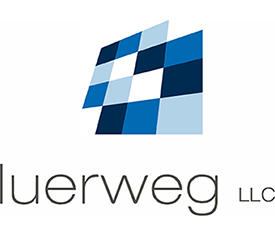key IT security standards for CPAs and Tax Professionals in the US
a critical guide for tax professionals in the US
✅ Key IT Security Standards for CPAs and Tax Professionals in the US
1. 🏛️ IRS Publication 4557 – Safeguarding Taxpayer Data
Issued by: Internal Revenue Service (IRS)
Applies to: All tax preparers and firms handling taxpayer information
📌 Key Requirements:
- Create a Written Information Security Plan (WISP)
- Use firewalls, anti-virus software, encryption, and secure backups
- Implement access controls (limit employee access to client data)
- Dispose of data securely
- Conduct regular security risk assessments
📘 This is the IRS’s baseline for data protection for tax professionals.
🔗 IRS Publication 4557
2. 🛡️ FTC Safeguards Rule (under the GLBA)
Applies to: All “financial institutions” – which includes tax preparers and accountants under FTC definitions.
Authority: Gramm-Leach-Bliley Act (GLBA)
📌 Key Points:
- Must develop and maintain a comprehensive data security program
- Must conduct a risk assessment
- Must appoint a qualified individual to oversee security
- Must train staff and monitor systems
🔍 The updated Safeguards Rule became enforceable in 2023 and now applies more strictly to small tax firms.
3. 🧾 AICPA Standards & SOC Reports
Issued by: American Institute of Certified Public Accountants (AICPA)
📌 Relevant Frameworks:
- SOC 1, SOC 2, SOC 3 reports (System and Organization Controls)
- Trust Services Criteria: security, availability, processing integrity, confidentiality, privacy
- Generally Accepted Privacy Principles (GAPP)
✔️ While not mandatory for every CPA firm, these are especially relevant for firms providing outsourced services, cloud solutions, or data processing.
4. 🧩 NIST Cybersecurity Framework (Voluntary)
Issued by: National Institute of Standards and Technology (NIST)
Applies to: All industries, often used as a best practice model
📌 Core functions:
- Identify threats
- Protect systems
- Detect breaches
- Respond to incidents
- Recover from attacks
🔐 Many CPA firms use this as a reference for building comprehensive cybersecurity strategies.
5. 💼 State Laws and Regulations
Some U.S. states (e.g., New York, California, Massachusetts) have specific data privacy and cybersecurity regulations (like NYDFS, CCPA, or MA 201 CMR 17.00) that can also apply to accounting firms.
🔍 Common Best Practices for CPAs & Tax Professionals
- Multi-factor authentication (MFA)
- Email encryption and secure portals
- Client data segmentation
- Regular security awareness training
- Cyber liability insurance
- Remote work policies with security controls
📌 Summary Table
| Standard / Guideline | Applies To | Key Focus |
|---|---|---|
| IRS Pub 4557 | Tax preparers | Data protection for taxpayer information |
| FTC Safeguards Rule | CPAs, accountants, tax pros | Comprehensive cybersecurity program |
| AICPA SOC Reports | CPA firms with service clients | Internal control and data security |
| NIST Framework | Voluntary | Broad cybersecurity best practices |
| State Regulations | Varies by state | Privacy and breach notification laws |


